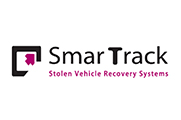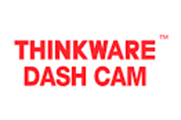
The changing role of the fleet manager
Original Article: Tom Tom Telematics
The traditional role of the fleet manager has changed dramatically over recent years. Increasing cost pressures, combined with legislative and technological developments have called for new skill sets, knowledge and expertise.
While fleet size, nature of operation, geographical spread and corporate objectives can all impact the modern day fleet manager’s responsibilities, in most cases the role has become more demanding, strategic and integral to wider company performance.
Furthermore, access to relevant fleet data to support these new responsibilities has become more important than ever before.
With input from fleet managers and industry consultants, we take a look at five key areas where the role of the fleet managers has changed – and is continuing to evolve.
1. Technological advancements: a revolution for fleet management
An unprecedented rate of technological development over the past couple of decades has revolutionised the ways businesses operate, monitor and control their company vehicles.
Telematics, for example, delivers a wealth of fleet data, enabling managers and drivers to optimise efficiency and performance. Precise vehicle locations can be monitored, jobs scheduled and drivers dispatched dynamically, journey routes optimise, accurate business mileage records recorded. Advanced driver behaviour and vehicle diagnostics systems enable early identification of faults and driving styles to be analysed, benchmarked and continuously improved.
Camera systems improve safety and security, routing and scheduling systems improve logistics, tablet and smartphone apps improve productivity while disparate field and back office hardware and software can now be integrated on a single platform for improved workflow.
Today’s fleet managers must understand and utilise the tools at their disposal, have the flexibility to adapt to new technology and use the fleet data it generates to improve companywide performance.
2. Money matters: financial obligations on the rise
Fleet costs are often one of the biggest expense for businesses after payroll. Consequently, the boundaries between fleet management and finance are merging with fleet data analysis – from purchasing models and cost-benefit analysis to risk profiling and whole life costs – a key influencing factor on the business bottom line.
Fleet managers’ competencies must reflect this and extend beyond simply the cost and running of the vehicle – or the requisite support must be available from elsewhere in the business.
Chris Stone, head of finance with gas distribution company SGN, has become heavily involved in fleet policy and says finance departments have an increasing role to play. Stone has driven the rollout of telematics across the company and is expecting to save in the region of £1million by implementing a driver performance improvement programme.
“At SGN, our finance team carries out commercial business decisions, complex tax calculations, financial negotiations, procurement and data analysis on a daily basis. It makes sense for us to include fleet data in our analysis to help make decisions around types of vehicle procured, fuel card tenders, etc.
“With our finance team working hand-in-hand with our experienced fleet team, we can better utilise the unique skill sets of each team to ensure we provide an even more efficient fleet management service to our business.”
3. A question of risk: increasing legal responsibilities
According to the Health and Safety Executive, employers have the same duty of care obligations for their mobile workers as for all their office site staff.
Over the years the amount of legislation fleets face has grown. Legislation governing fleet risk operations today ranges from the Health and Safety at Work Act to the more recent Corporate Manslaughter and Corporate Homicide Act. Fleet managers have an increasing duty to ensure their organisations stay on the right side of the law.
Simply ensuring drivers hold valid licences and that their company vehicles have valid MOT certificates may not be enough to ensure their safety. According to the Department for Transport’s ‘Driving for Better Business’, to ensure risks are effectively managed organisations must address their health and safety “policy, responsibility, organisation, systems and monitoring”.
From introducing risk management policies to ensuring vehicle checks are conducted; from monitoring driver hours to managing driver behaviour – the modern day fleet manager, often in conjunction with HR departments, may face numerous risk management responsibilities. See our guide to the top 10 risk management KPIs every fleet manager should be aware of.
4. The emerging eco-warrior
Vehicle horsepower was once front of mind for many fleet managers – but times have changed.
Sustainability has become an important topic on the business agenda with companies keen to become more responsible and more efficient, while customers increasingly expect a responsible approach from the organisations they do business with.
The business case for green fleet management has become a strong one and fleet managers have had to factor this into their decision-making – from procuring low emission vehicles with better fuel consumption and lower company car tax for drivers to innovative fuel saving technology, such as OptiDrive 360 that can also help reduce road risk and vehicle maintenance costs.
The importance of green fleet management has been recognised far and wide with organisations from BMW Group, Daimler and CTAG to the University of Leeds, TomTom Telematics and Centro Ricerche Fiat recently partnering in the EU-funded ecoDriver project, to reduce CO2 emissions and fuel consumption in road transport.
5. Business Mobility: the merging of fleet and travel management
Mobility is the new buzz word finding its way into business parlance for managers who have responsibility for not only a company vehicle fleet, but also for other means of employee travel whether bus, train or plane.
A new breed of fleet manager is emerging who has to consider the total of cost of employee journeys, taking account of factors such as accommodation, parking and taxi fares.
With so many synergies between not only fleet and travel, an amalgamation of roles under the umbrella of mobility is inevitable in many quarters, according to Julie Summerell, CEO at TR Fleet Group.
“Fleet managers must look to up-skill to avoid their jobs being subsumed under other business functions such as travel or HR,” she explains. “This emerging mobility trend should be regarded as an opportunity for the fleet manager, rather than a threat.”




About the Author